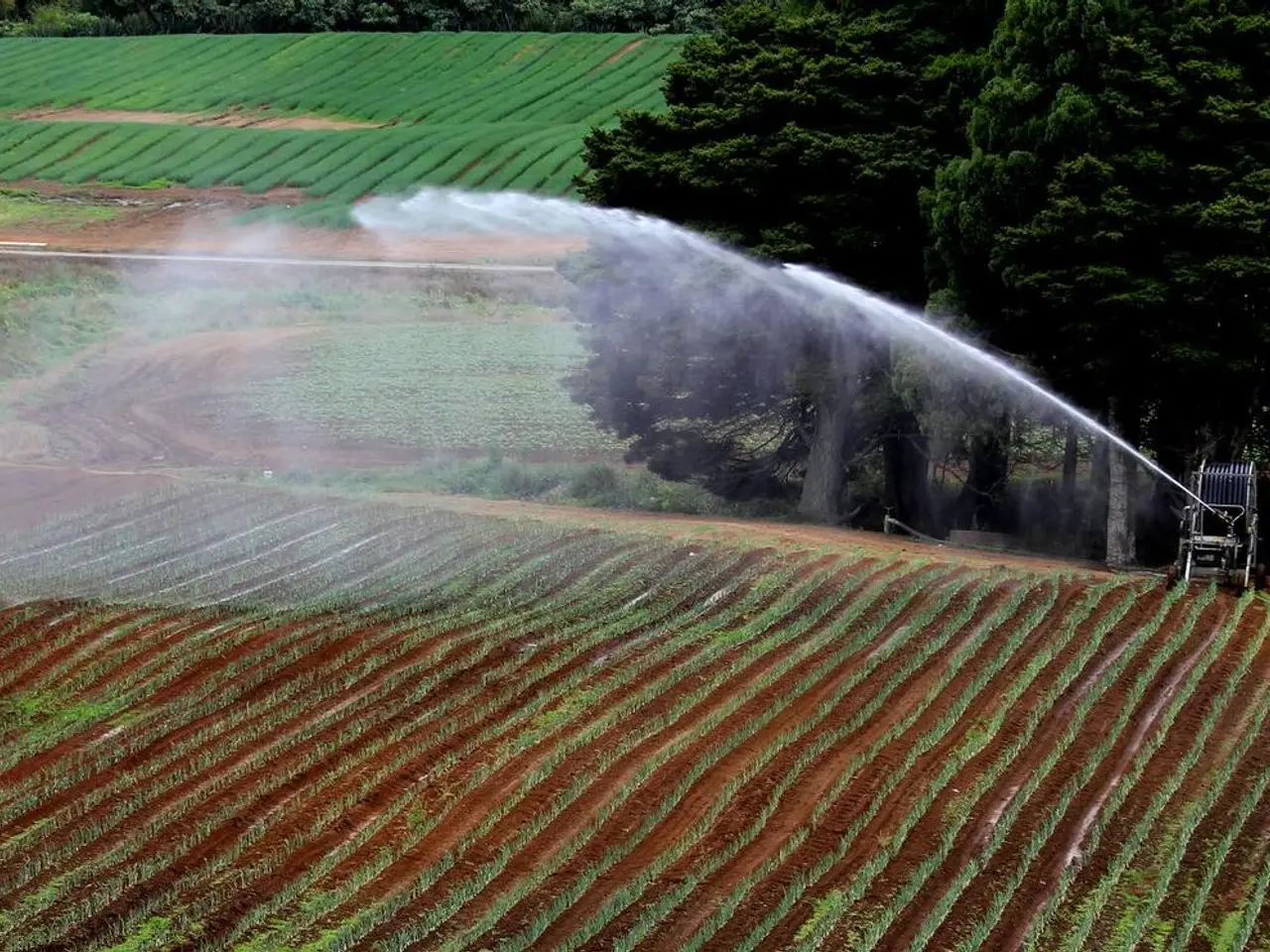Agricultural field boundaries highlighting eco-friendly farming practices
The Bio-Model Region Neckar-Odenwald, located in the heart of Baden-Württemberg, is leading the way in sustainable agriculture. Established in 2019 and active until 2028, this initiative is a collaborative effort between the Neckar-Odenwald district, the Bauernverband Neckar Odenwald-Kreis e.V., and the Neckar-Odenwald district association of the Gemeindetag Baden-Württemberg.
At the helm of this region is Ruth Weniger, the regional manager based at the Landratsamt Neckar-Odenwald district. The steering committee of the Bio-Model Region Neckar-Odenwald includes representatives from the agriculture, food craft, and marketing sectors, ensuring a holistic approach to the projects undertaken.
One of the key initiatives of the Bio-Model Region Neckar-Odenwald is the use of field edge signs. These signs provide immediate, on-site information about specific projects and are being used by farmers such as Michael and Tobias Schiffmann and Philipp Sack. The Schiffmanns' sign reads "We promote organic farming!", while Sack's sign reads "We expand biological plant protection!", detailing his use of Trichogramma wasps to reduce the infestation of corn borers on his farm.
The field edge signs cover a wide range of topics, including promotion of plant and animal diversity, reduction of chemical-synthetic plant protection agents, extensive greenland management, organic farming, care of valuable orchards, cultivation of native protein plants, expansion of biological plant protection, greening of arable land, fallow land, creation of flowering areas, and cultivation of cereals with undersowing.
The German state of Baden-Württemberg aims to inform consumers about these agri-environmental measures in the field using these signs. Minister of Food, Rural Areas and Consumer Protection, Peter Hauk, stated that these signs provide information about various agri-environmental measures and their funding sources.
In addition, the Bio-Model Region Neckar-Odenwald contributes to various environmental and conservation projects, such as maintaining biodiversity, protecting the soil, improving air and water quality, and combating climate change. The region also works on topics and projects such as on-farm slaughtering, education and awareness, marketing, agriculture, and nature conservation.
Citizens can reach out to the Bio-Model Region Neckar-Odenwald through a contact form, and the region also has a press office available for media inquiries. As the current funding period ends in 2023, the region is preparing for the future, with farmers able to register with their local agricultural authority to obtain free field edge signs that document and promote their efforts in environmental and nature conservation.
The Bio-Model Region Neckar-Odenwald district covers the entire area of the Neckar-Odenwald district, including all 27 cities and municipalities. With the Common Agricultural Policy (CAP) Strategy Plan for the second pillar allocating an additional 1.5 billion euros for the years 2023 to 2027 in Baden-Württemberg, with 90% going towards agriculture, the future of sustainable agriculture in the region looks promising.
Read also:
- Understanding Hemorrhagic Gastroenteritis: Key Facts
- Stopping Osteoporosis Treatment: Timeline Considerations
- Tobacco industry's suggested changes on a legislative modification are disregarded by health journalists
- Expanded Community Health Involvement by CK Birla Hospitals, Jaipur, Maintained Through Consistent Outreach Programs Across Rajasthan








